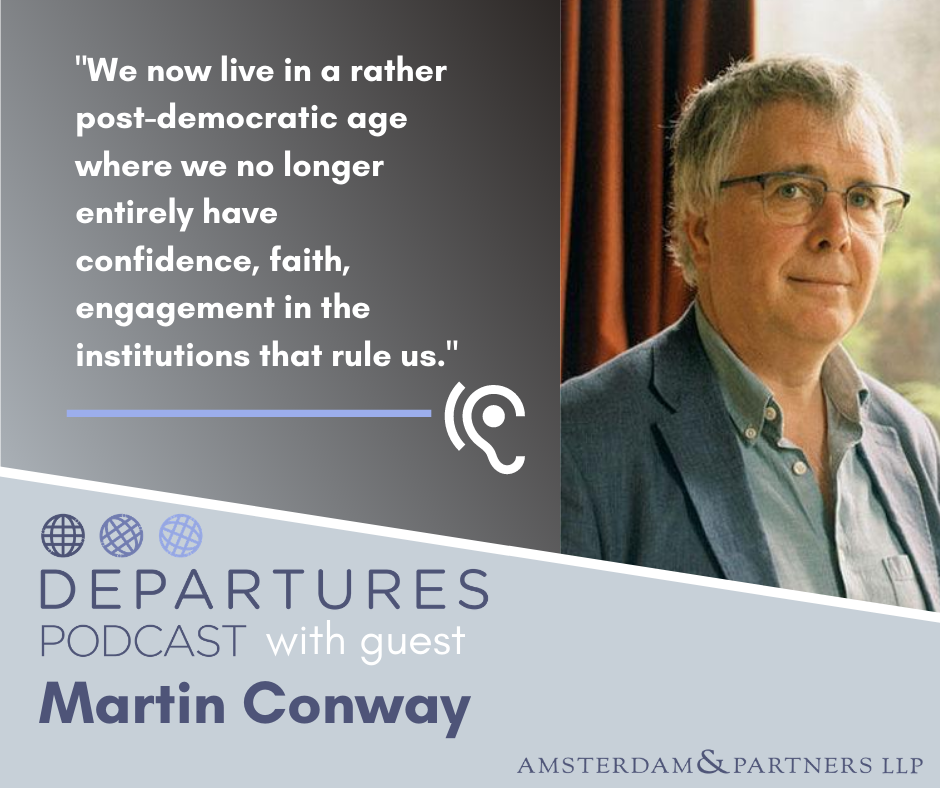Departures Podcast with Martin Conway

Following the demise of the Nazi regime in Germany at the end of the second World War, European nations set about a series of reforms to their political systems which would continue to entail popular representation expressed through a stronger set of institutions, bureaucracy, and law to constrain the potential abuses which sparked the war.
Oxford historian Martin Conway has recently published a fascinating study of this period in his book, “Western Europe’s Democratic Age 1945-1968.”
In this conversation with Robert Amsterdam, Conway explains that we have been remarkably fortunate with the success of these efforts, as we often forget that there was never any sort of preordained roadmap for Europe to follow. The democratic models that evolved during this period were the result of complex social forces, economic interests, and historical experiences and could have easily failed.
Conway said that the lessons that most European elites drew from the Weimar Republic was that there had been “too much democracy,” and that there should be measures in place to check politicians from exploiting the worst instincts of the public.
“The democracy that is brought in after 1945 is one that is deliberately intended by its architects, essentially elite figures, was to produce a rather managed and controlled form of politics. An they certainly didn’t look to America for that – they looked to America and they saw a demagogic, corrupt politics that they really wanted to avoid,” Conway says.
Reflecting on the more recent period, Conway offers his perspective that we are already living in a different age in which we have no consensus about the political regime we should all be supporting.
“We now live in a rather post-democratic age where we no longer entirely have confidence, faith, engagement in the institutions that rule us,” he says.
One wonders what changes the next phase of democracy will bring.











